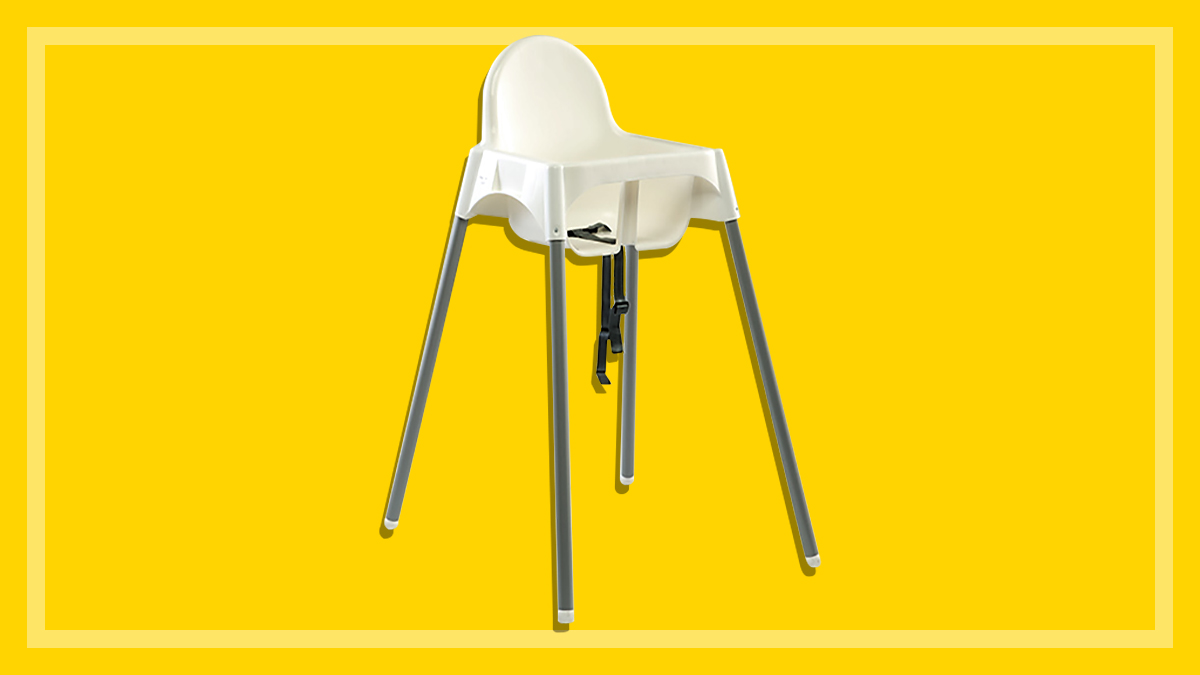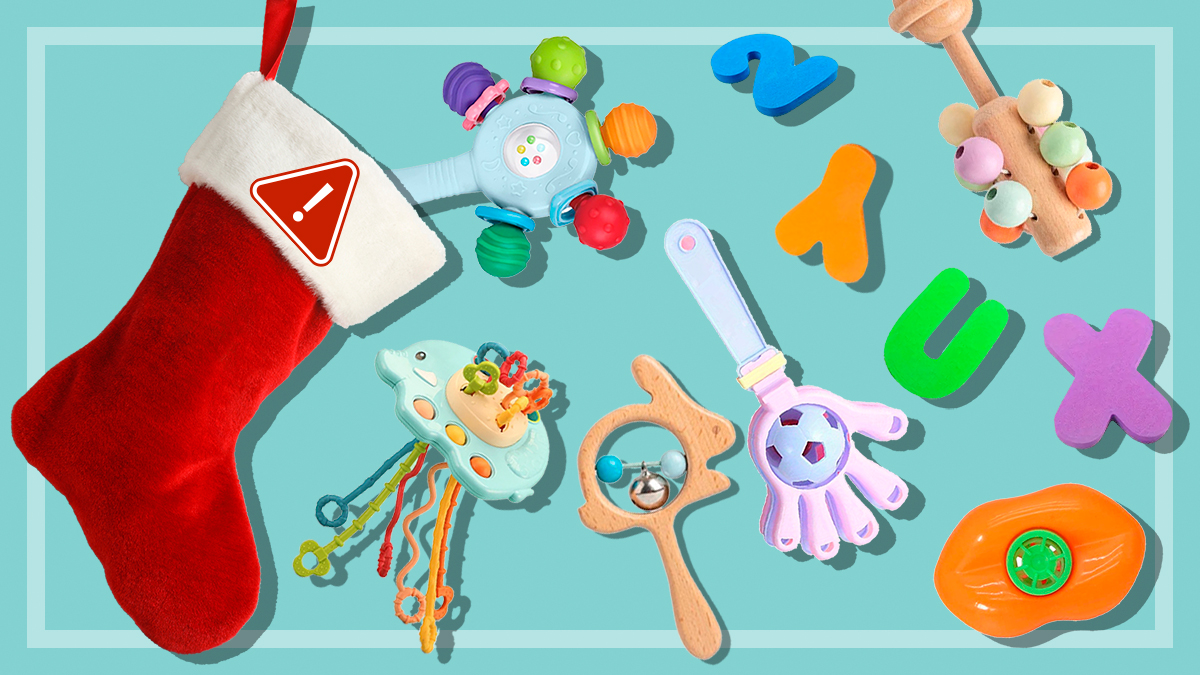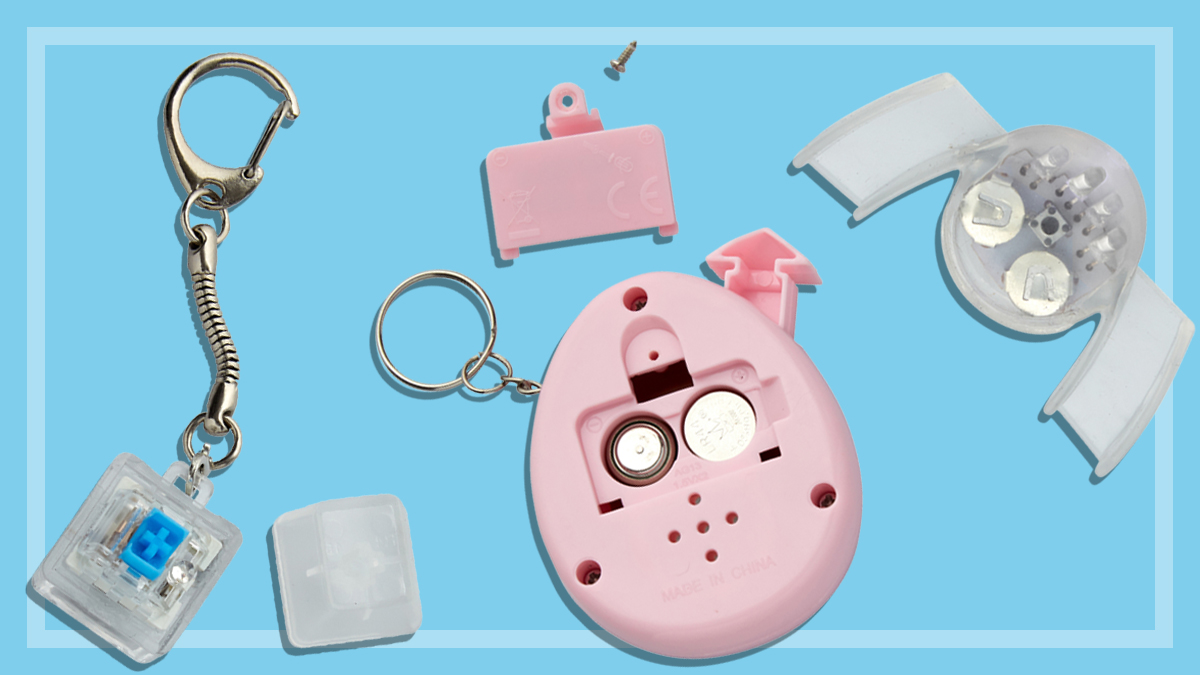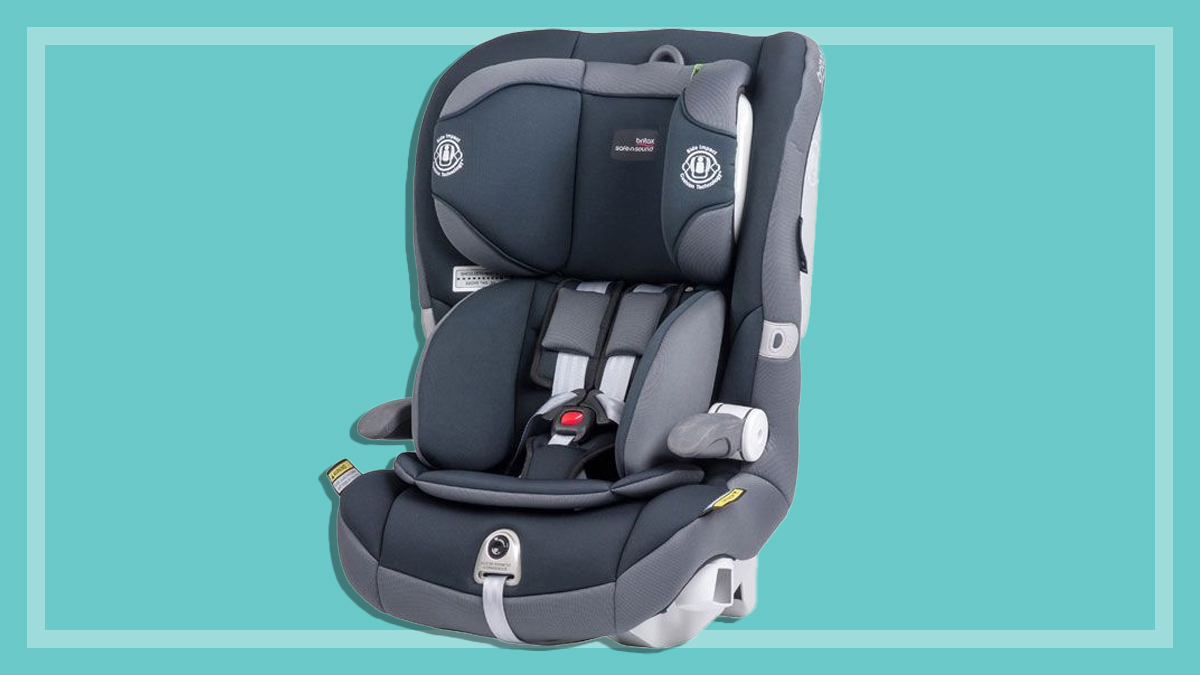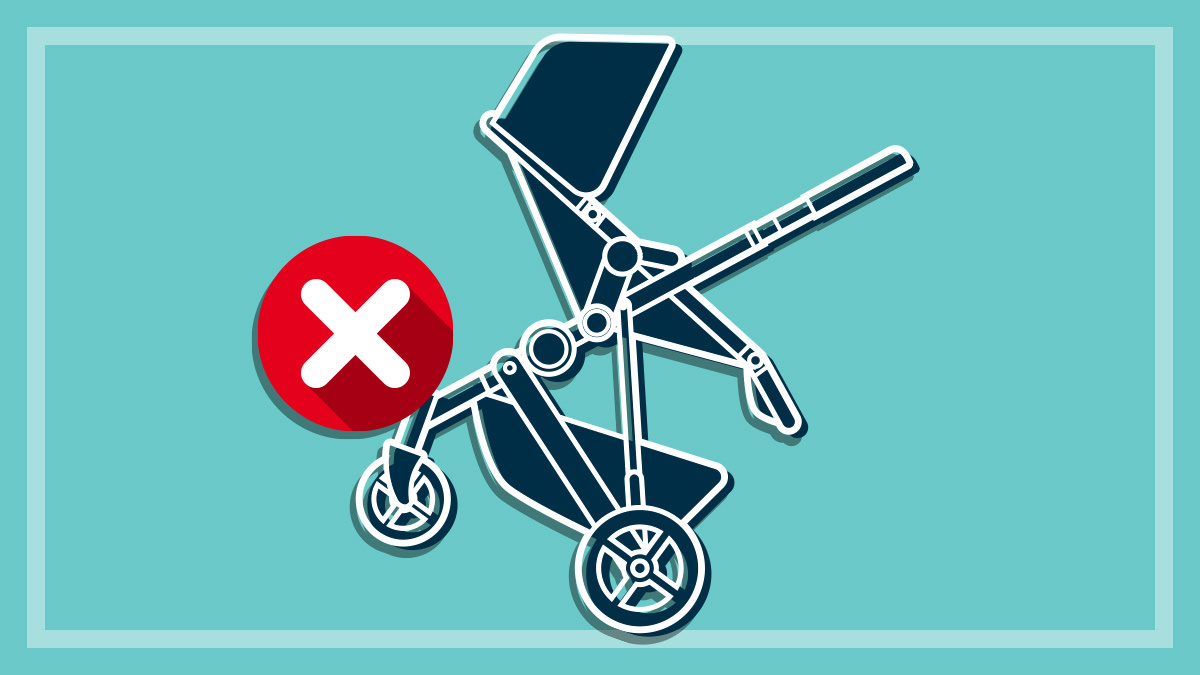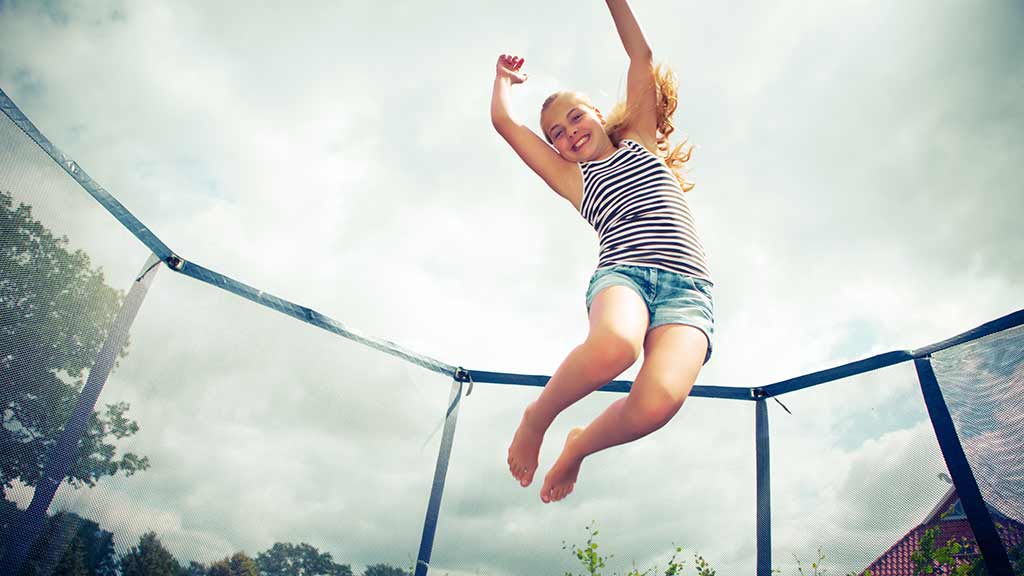Get our independent lab tests, expert reviews and honest advice.
What to look for when buying a high chair
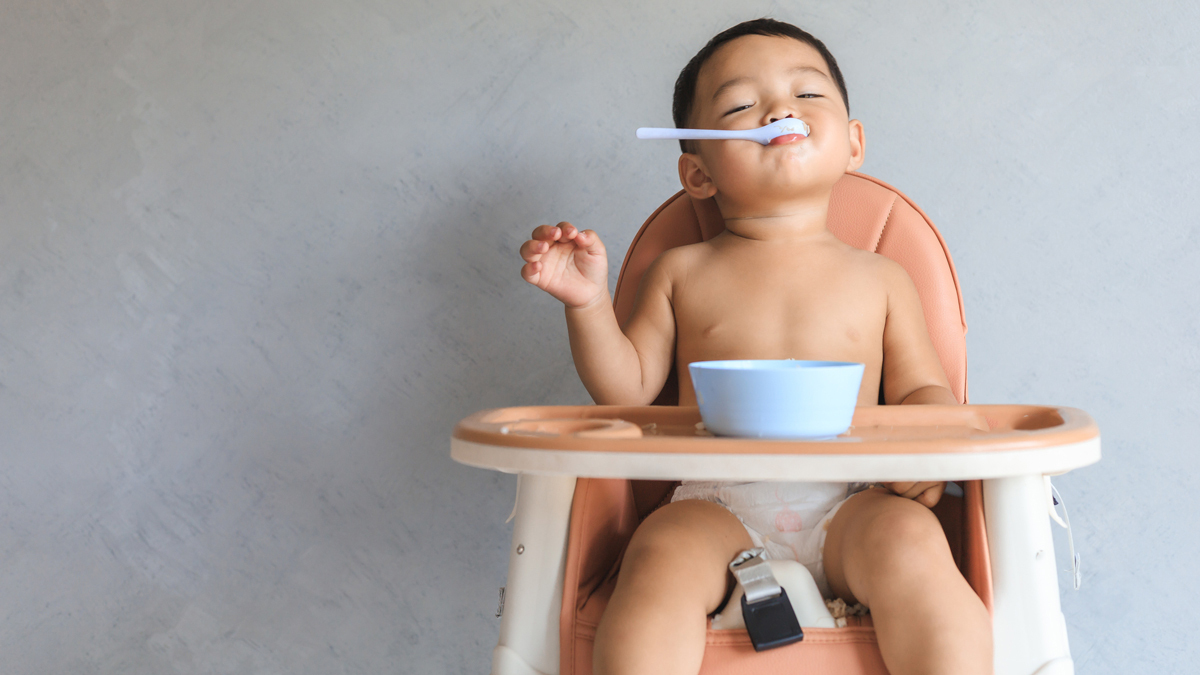
From flying food and tumbling crockery to tears, smears and mess, feeding time can be a challenging experience – the last thing you want is a high chair that hinders rather than helps.
On this page:
High chairs should be sturdy and safe and have all the right features to make feeding time easy. This guide includes things to consider when buying a stand-alone high chair, as well as other options like portable or clip-on baby chairs.
High chair safety
The most common form of injury involving high chairs is when a child falls after trying to stand up in, climb into, or get out of the chair. Other serious injuries can result from having their fingers, toes or limbs pinched or crushed by moving parts or gaps, or choking on easily detachable small parts.
Make sure you check out the chair when it’s set up in the store, and really get in there – rock it to check stability, get your fingers into any nooks and crannies, and play with moving parts to check for finger or limb traps.
Make sure you check out the high chair when it’s set up in the store – rock it to check stability, get your fingers into any nooks and crannies
When shopping, look for chairs that comply with the Australian Standard for high chairs, AS 4684:2009, or the European Standard (EN 14988) – there are a variety of different styles, so you shouldn’t have to sacrifice safety to buy one that looks good in your kitchen or dining room, if that’s important to you.
And when you get home, make sure you set up the chair at least half a metre from anything your child could use to push off from and topple over – windows, large furniture, pull cords on lights or blinds, and so on.
How much do high chairs cost?
Given the high chairs in our most recent test start at $29 and go up to almost $800, it can be difficult to work out how much you should be paying. However, our testing has shown that a higher price tag isn’t always an indicator of a better performer – we recommend several models under $100 that pass all our key safety tests and score well for ease of cleaning, so you don’t have to spend big to get a quality high chair.
What to look for in a high chair
Five-point harness
This means a harness with shoulders, waist and crotch straps so kids can’t fall or climb out. One with three points (waist and crotch straps only) may be worth considering, but five-point harnesses are safer.
Shoulder straps that attach to the seat at shoulder height provide more effective restraint than ones that attach to the back of the waist strap.
The crotch strap should be anchored close enough to the back that the child can’t slip through one side. The buckles should be easy for you, but not your child, to release. Ideally, the harness should be non-removable, or at least require a tool to remove it for washing (such as undoing a screw). This is so that you or your child are unlikely to take it off and lose it, or forget to reattach it.
Convertible chairs
Some high chairs are sold as junior chairs suitable for young children, but with a high chair attachment (seat and tray) that costs extra.
Construction
This should be sturdy and robust enough to carry the weight of a child. Push on the seat and backrest to see if these squeak, sag, deform, move out of position or collapse.
Stability
Look for legs that spread outwards further than all other parts of the chair – the area of the floor space between the four legs should be greater than the area of the seat. Perfectly vertical legs aren’t as stable.
Moving parts
These shouldn’t be able to pinch, crush or trap a child’s finger, toe, limb or head (or the fingers of an adult folding or adjusting the chair). Also check for sharp edges and points along the edges of the chair and tray, and easily detachable parts (including stickers) that could pose a choking hazard.
Castor wheels
These are handy for moving the chair around and they should have brakes that lock in position on at least two of them (the front or back set). If the chair doesn’t have castors, make sure it’s light enough to move easily without them.
Large or adjustable seat
This is useful if you plan to use the chair for some years, as it will accommodate a toddler.
Reclining back or seat
This is good for younger babies who can’t sit upright for long.
Tray
This should be secure when fitted, but easy to remove, attach and adjust.
Height adjustment and back-reclining
Height adjustment is a handy feature that should be easy for you, but not your child, to operate. It lets the chair match the seat you’re feeding your child from. The mechanism should be out of the child’s reach and require some strength or dexterity to use.
Any models that have back-reclining should never be used in this position for feeding solids or sleeping.
Foldable
This is handy for storage. The chair should be easy to fold and unfold, and preferably lock in its folded position.
Lightweight
If you’re going to be regularly getting the chair out and storing it away again, make sure it’s not too heavy.
Footrest or leg support
This is important to support the child’s feet or calves. Adjustable footrests are useful as the child grows.
Simple to clean
Watch out for nooks and crannies in the chair frame, cushion or straps where food can be hard to clean out. Some models have a lot of cushioning which may be comfy for your child, but can be very difficult to clean.
Material
You may be able to choose from a range of colours and patterns. The cushioning on many high chairs may be wipe-clean vinyl. Darker colours and busy patterns may disguise stains better.
Portable high chairs
Harnesses, boosters and clip-on toddler and infant seats are compact alternatives to a standard high chair – here are additional things to consider if you like this option.
Fitting
The seat should fit securely and easily. Most stores (and product websites) have them set up so you can see how they work.
Security
Make sure the seat won’t move, or tip over the table or chair, once it’s attached and your child is in place. Give it a firm tug up, down, sideways, back and forth to make sure it’s anchored securely.
Seat
The seat should have back and side support, and prevent the child from leaning too far and unbalancing or falling. A seat that reclines is useful for seating an infant.
Tray
If provided, the tray should be secure when fitted but easy to remove, attach and adjust.
Washable
The chair should be easy to clean.
Height-adjustable
Some booster seats can be height adjusted for smaller or larger children.
Capacity
Check that the recommended age and weight for the seat suits your child.
Junior chairs
When your child has grown up a little and no longer needs a harness to sit safely, you could consider a tall junior chair as a replacement for the old high chair. These are simply elevated, child-sized seats that allow your youngster to sit at the dinner table with the family. They usually have a footrest so the child can sit comfortably without their legs dangling. (As mentioned previously, some of these chairs come with high chair attachments.)
The high chair standard does not technically apply to chairs like these, so check that the chair is stable enough to not topple sideways or backwards if the child pushes against the table.

